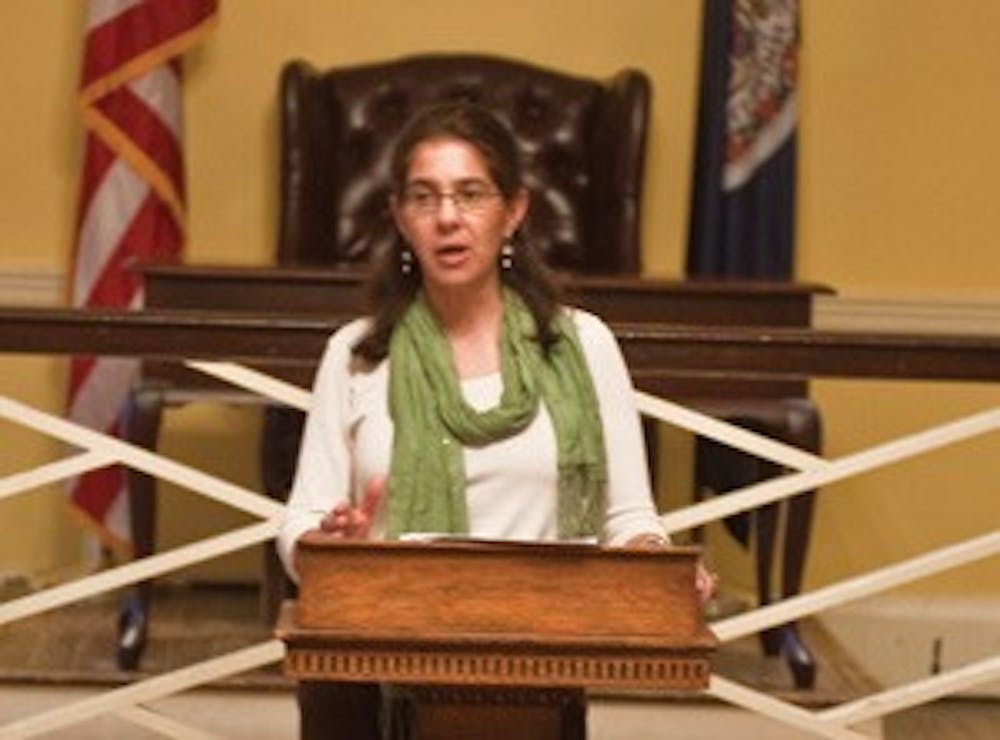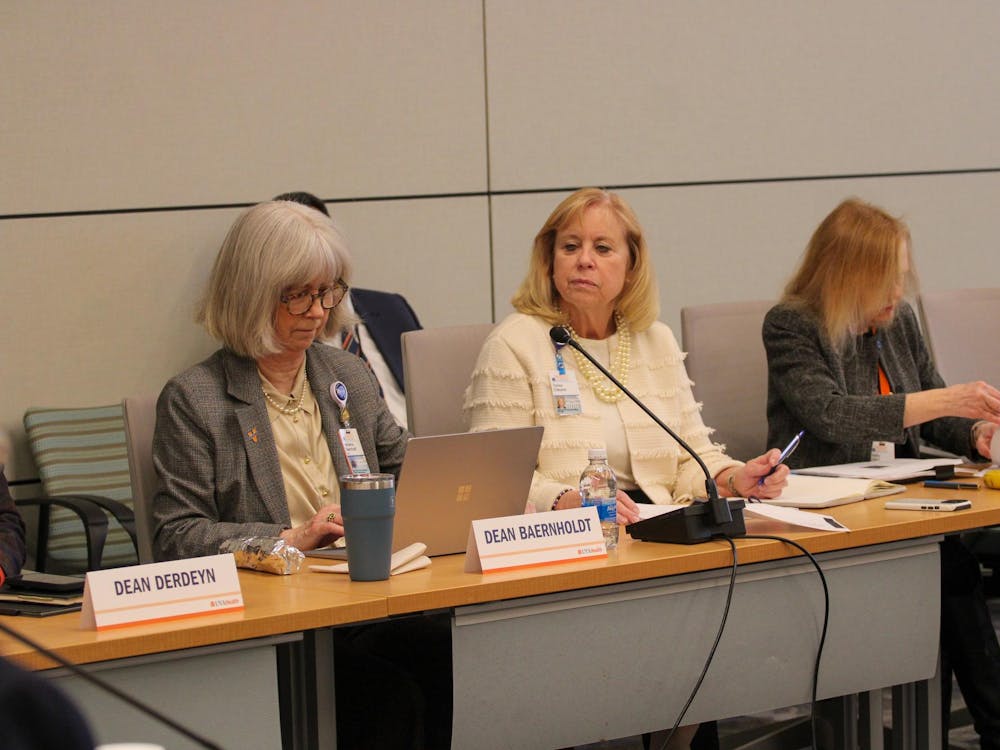Stimson Center Senior Advisor Mona Yacoubian spoke yesterday about the current Syrian uprising one year after the Arab Spring at the weekly meeting of the International Relations Organization.
The discussion centered on Syrian politics, including concerns about the nation's deteriorating domestic situation and the possible collapse of Pres. Bashar al-Assad's regime. Yacoubian also speculated about the possible futures of other nations involved in the Arab Spring, including Tunisia, Egypt, Yemen and Libya.
"If the Assad regime collapses, which I believe it will, it will have a ripple effect on the diplomacy of its neighbors," Yacoubian said. "We are on the verge of significant change in the Middle East. There are great challenges, but with them come great opportunities."
Yacoubian said Syria likely faces one of three possibilities: a peaceful transition to a different regime, a military uprising similar to the one which took place in Tunisia or preemptive reforms. She said, however, the relatively secretive nature of the Syrian regime makes it difficult for analysts to evaluate the political situation.
"Unlike the other uprisings, this one has been the most cut-off from foreign journalists and the press," Yacoubian said. "It is very difficult to even tell what is happening."
Apart from the Syrian uprising, the upcoming May Egyptian elections pose another challenge to the Arab Spring's legacy. The Egyptian military, which currently holds power, has promised to return control to a civilian government following the election, but there are questions about whether this transfer of power will actually occur, Politics Prof. William Quandt said.
"The Parliament is working with the military to draft a new constitution before the election of the president, so the voters know who they're voting for," Quandt said.
Quandt said the two most likely candidates are former Foreign Minister Amr Moussa and Dr. Abdel Moneim Aboul Fotouh, a former member of the Muslim Brotherhood.
Constructing the idea of the Arab Spring creates problems, Quandt said, because each of the countries involved have different histories and have followed different trajectories since last spring. Syria's situation does not compare exactly to the conditions in Egypt a year ago, he added.
"In Egypt the military separated itself from the leader, to keep its own prerogatives, and later allied with a popular uprising," Quandt said. "This did not happen in Syria. The military comes from a minority group within the country and fears retribution. The leaders also fear there will be no soft landing."
Yacoubian said ultimately the fate of the Middle East will likely hinge on economic integration and diplomacy with Syria,
"The window has not shut on the potential for diplomacy to solve this issue," she said.







